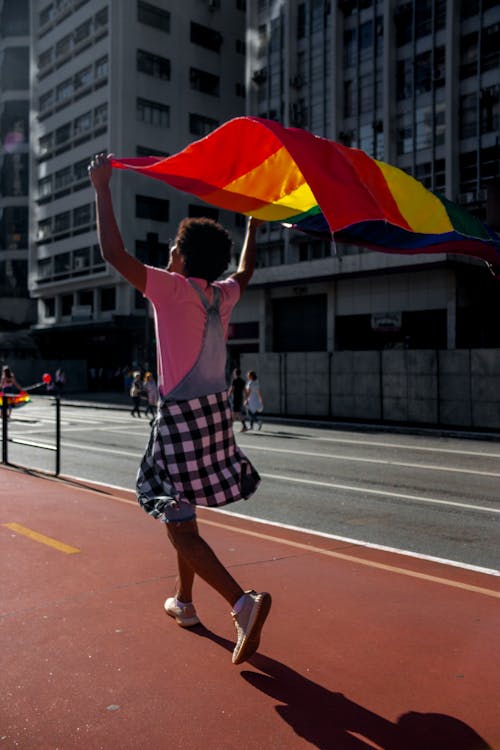On June 28th, 52 years ago, police officers barged into the Stonewall Inn, known for being the only gay bar in New York that allowed dancing.
Back then, homophobic laws banned the activity and even sought to close every gay bar in the city. The politicians sponsoring such legislation gave law enforcement permission to openly harass LGBT+ individuals, a habit that led to police storming the Stonewall Inn in Greenwich Village.
After arresting a few patrons in the bar, one officer assaulted a lesbian woman, which incited the crowd to throw stones and objects from the bar. Police were forced to call for backup to contain the growing crowd.
Their reinforcements didn’t do the trick.
The unrest continued for days. On the fifth night after the initial riot, thousands turned up outside of the Stonewall Inn to protest. They held hands, which was illegal at the time, while flipping over nearby cars and clashing with police officers. By the end of the riots, law enforcement arrested 21 protesters, which garnered widespread publicity.
Organizers used this attention to spark a renewed LGBT+ rights movement. The Gay Activists Alliance among other groups organized demonstrations like the Christopher Street Liberation Day march to commemorate the riots. After decades of organizing, that event became the New York City Pride March, the largest of its kind anywhere in the world. Now, people across the country observe Pride Month. What originally began as single day festivals and parades towards the end of the month has evolved into a 30-day celebration of sexual identity and gender orientation.

Whether the general public is aware of the holiday’s origins, taking part in Pride Month is an endorsement of the power of protest and organizing. The annual observance wouldn’t exist if concerned citizens didn’t transform momentum into impact.
This is what we mean when we say something is a “movement, not a moment.” By banding together, identifying areas of potential reform, and aggressively spreading the word, we can convert energy, anger, fear, and sorrow into action and results. Protests aren’t pointless, even if they feel like it sometimes. Community is a powerful thing and should never be taken lightly.
Without the action of the post-Stonewall organizers, anti-LGBT+ bills may have reigned in New York City for decades. Protesting is as important to our society as voting for this reason. The ballot box becomes less accessible to minorities every day while the votes made there are implicit endorsements of the powers that be.
Protests, on the other hand, challenge existing power structures by seeking nontraditional change. Protest demands sweeping reforms rather than incremental shifts. Such change is possible through organizing, something that marginalized communities have taken to heart.
The next time someone tells you that the public won’t listen to protesters because of the inconvenience they bring to “normal” life, remind them of the Stonewall Riots. An entire movement began with like-minded individuals coming together for a higher purpose and our country is all the better for it.
